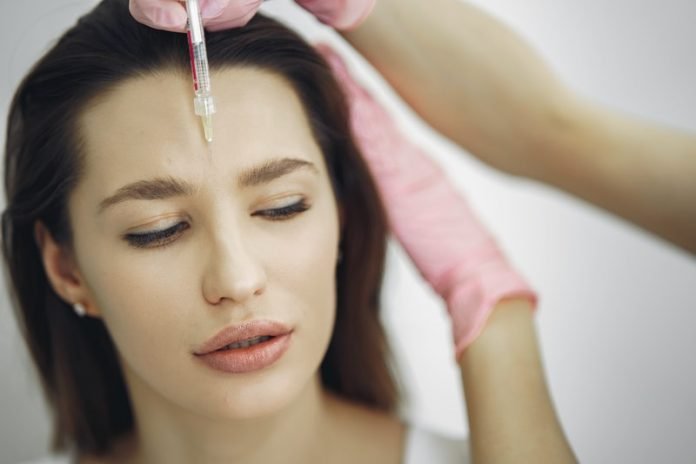
Botox, a medication derived from a bacterial toxin, is commonly injected to ease wrinkles, migraines, muscle spasms, excessive sweating, and incontinence.
Forehead injection of the medication is also currently being tested in clinical trials for its ability to treat depression.
In a new study, researchers have mined the U.S. Food and Drug Administration (FDA)’s Adverse Effect Reporting System (FAERS) database to see what nearly 40,000 people reported happened to them after treatment with Botox for a variety of reasons.
They found that people who received Botox injections — at six different sites, not just in the forehead — reported depression much less often than patients undergoing different treatments for the same conditions.
The research was conducted by a team at the University of California San Diego.
For years, clinicians have observed that Botox injected for cosmetic reasons seems to ease depression for their patients.
It’s been thought that easing severe frown lines in the forehead region disrupts a feedback loop that reinforces negative emotions.
But the researchers have found here that the mechanism may be more complex because it doesn’t really matter where the Botox is injected.
In the study, the FAERS database contains more than 13 million voluntary reports of adverse effects people experienced while taking a medication.
The team found they can also use the database to look at the absence of a health complaint when a person takes medication if compared to a control group. In this case, they searched for the absence of depression.
The team focused on nearly 40,000 FAERS reports of people experiencing adverse events after Botox treatment.
The reports cover Botox treatment for eight different reasons and injection sites, including forehead, neck, limbs, and bladder.
Then the team looked for significant differences between Botox users and patients who received different treatments for the same conditions.
Here’s what they found: Depression was reported 40% to 88% less often by Botox-treated patients for six of the eight conditions and injection sites.
The findings support a new treatment to affect mood and fight depression, one of the common and dangerous mental illnesses.
The clinical trial underway is directly testing Botox treatment for people with depression, a gold standard approach for gathering insights on the relationship between a medication and a health condition.
Since that trial is only testing forehead injection of Botox, the team says additional clinical trials may be necessary to work out the best site and dose to administer the medication specifically for the treatment of depression.
One author of the study is Ruben Abagyan, Ph.D., a professor of pharmacy.
The study is published in Scientific Reports.
Copyright © 2020 Knowridge Science Report. All rights reserved.



